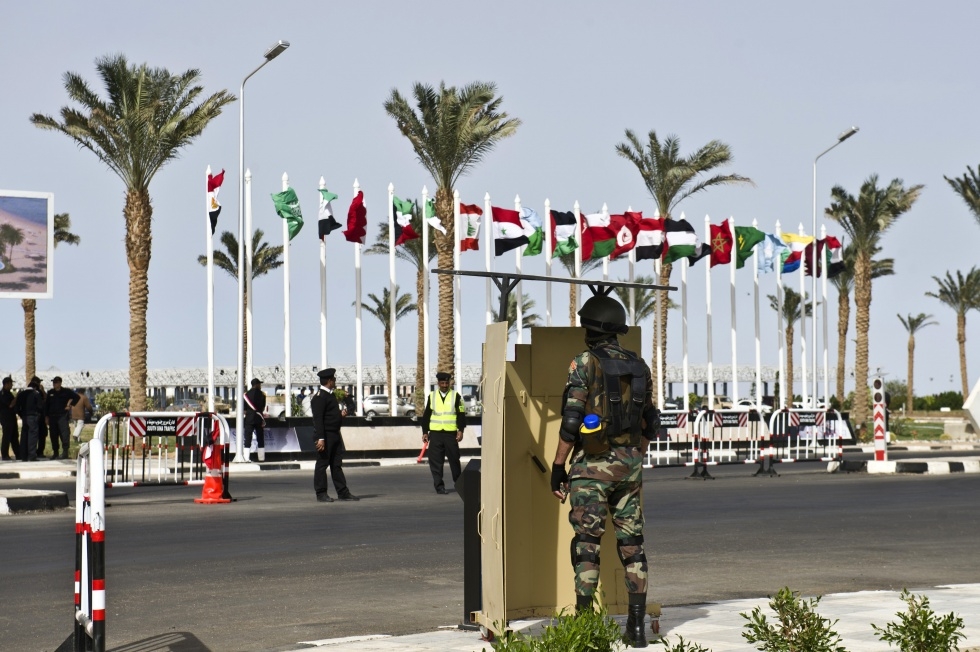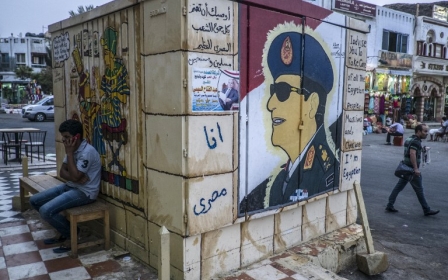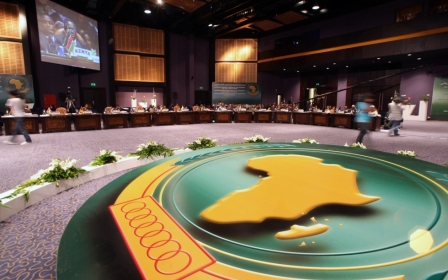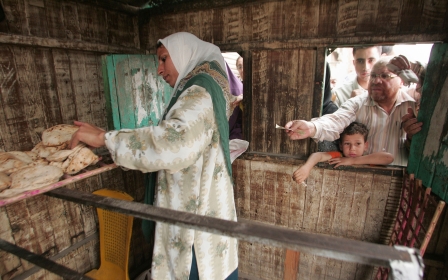Sisi kicks off Egypt's economy conference as bombs rock Cairo

Egypt's president kicked off a high stakes international conference on Friday afternoon in which the country will attempt to attract an estimated $60bn to jump start its troubled economy.
"Egypt is going towards the future. Egypt is quite open to the world," President Abdel Fattah al-Sisi told an audience including representatives from 80 countries and 23 international organisations.
"Egypt is welcoming investors who are seeking to use the chances given to them by Egypt and giving a better life for Egypt," he said.
Sisi said he aims to increase economic growth in the country by six percent and decrease unemployment by 10 percent in the next five years.
The two-day gathering in the South Sinai resort town of Sharm el-Sheikh opened amid bombings in Cairo and concerns over security.
Along with boosting Egypt’s ailing economy, Egypts will look to the event to shore up the legitimacy of Sisi, who has pledged to deliver fiscal progress in a country plagued by instability.
A series of five bombs rocked the upmarket south Cairo district of Maadi, popular with foreign expats and home to the country’s Supreme Constitutional Court, overnight on Thursday.
Another three bombs were reportedly defused – nobody was hurt in the attacks, but eyewitnesses reported that cars were destroyed and electricity was cut in the area for several hours.
A spate of bomb attacks, many targeting foreign-owned companies like Kentucky Fried Chicken, have rocked Egypt in recent weeks.
The Washington-based think tank Tahrir Institute for Middle East Policy now estimates that there are an average of 1.75 explosions in Egypt every day.
Ahead of his keynote speech later in the day, Sisi insisted early Friday that such bombs, timed to coincide with final preparations for the foreign investment conference, would not mar progress in Egypt.
“These wretched acts of terror only increase Egyptians’ persistence in achieving their ambitions to build the Egypt of the future,” the president’s spokesperson was quoted as saying by state-owned daily al-Ahram.
Security has been beefed up in Sharm al-Sheikh and around the Sinai Peninsula, with an additional 50,000 troops deployed in the area.
Many are braced for attacks as hundreds of company heads and foreign officials gather in the resort to discuss boosting foreign investment in Egypt.
US Secretary of State John Kerry, who is stopping in Egypt on his way to participate in Iran nuclear talks, will address the conference later on Friday.
He is expected to praise economic reforms pushed through by Sisi’s government in the months since it secured an election win with more than 96 percent of the vote, in a poll marred by low turnout.
“We are coming to acknowledge the steps that the Egyptians have taken recently to try to build a more welcoming and open investment environment and press for more of the same,” Kerry told reporters on Thursday.
Sisi’s economic policies have included an unpopular cut to fuel subsidies – on the eve of the conference, the president also ratified an amendment to the country’s foreign investment law, which will “create an investor-friendly environment,” according to a statement from the premier’s office.
Many Egyptians have been expressing their support for the conference on Twitter, where the hashtags #EconomicsConference and #SharmAlSheikh have been trending for days.
However, opposition activists have been using the hashtag #EgyptIsNotForSale, describing the two-day summit as a conference “to steal from Egypt”.
Flares were lit during a demonstration against the conference in Cairo’s eastern district of Nasr City on Thursday night.
Some fear that opening Egypt up to more foreign investment could mean Egyptian assets leaving the country with little trickle-down effect on ordinary citizens, many of whom struggle with stagnant wages and the high cost of living.
Foreign investment in Egypt dried up quickly after the 2011 uprising that toppled long-time strongman Hosni Mubarak, who presided over neoliberal economic policies that many say led to the massive street protests that ended his 30-year rule.
Foreign direct investment (FDI) in Egypt totalled $4 billion in 2014, compared to a pre-revolution high of $13 billion in 2007-2008. With the International Monetary Fund projecting 3.8 percent growth for the financial year ending 30 June, the country’s Investment Minister Ashraf Salman is hopeful that FDI could double to bring in $8 billion to the Egyptian economy in 2015.
New MEE newsletter: Jerusalem Dispatch
Sign up to get the latest insights and analysis on Israel-Palestine, alongside Turkey Unpacked and other MEE newsletters
Middle East Eye delivers independent and unrivalled coverage and analysis of the Middle East, North Africa and beyond. To learn more about republishing this content and the associated fees, please fill out this form. More about MEE can be found here.




